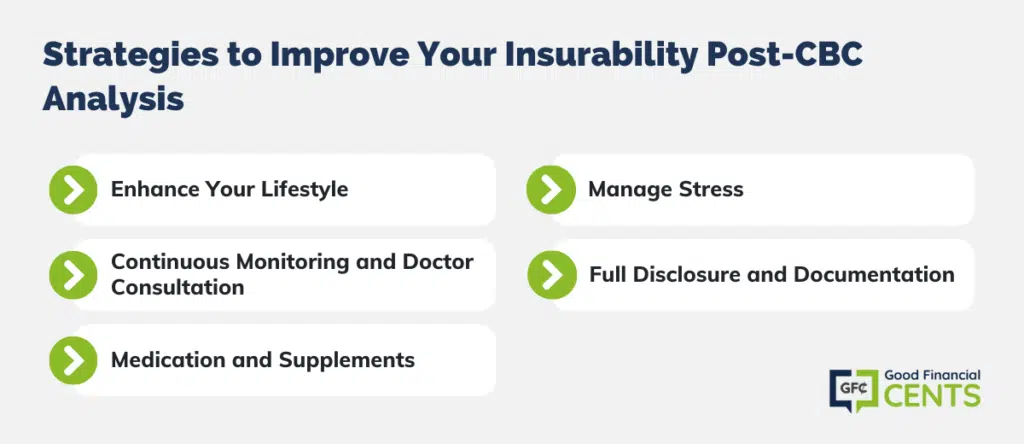The insurance company might request a number of different tests to check your health. One commonly ordered test is the Complete Blood Count (CBC).
This test looks at the three major cell lines in your blood (red blood cells, white blood cells, and platelets) to see if you have any undetected illnesses or problems.
To get a better idea of how this test works and how it might impact your insurability, we’ve put together this guide to help you get the perfect plan.
We are going to show you how CBC is going to impact your life insurance rates. If you don’t think you can get affordable, keep reading.
Table of Contents
When Would You Need a Complete Blood Count?
Your doctor might order a CBC for you as part of a regular checkup, even if you’re healthy. This test looks at many different factors and can detect problems early before they’ve started showing other symptoms.
If you’ve ever had a complete blood count, the results will show up in your medical history, which a life insurance company will review when you apply for coverage.
Typically, life insurance companies don’t request a CBC as part of a regular application. If there are old results on your medical records, they’ll review them but if you are relatively healthy, you most likely won’t need to take a new CBC.
However, if you’ve had a health problem in the past, the insurance company may request a new CBC to see how you’re doing. For example, it is common for applicants with a history of anemia to need to take a CBC before qualifying for coverage.
How Do You Take a Complete Blood Count?
A CBC goes beyond the regular blood test that is part of most insurance applications. For a regular insurance application, you usually give your blood to a technician who transports your blood to a lab.
This doesn’t work for a CBC because the major cell lines can degrade during transportation. As a result, if you need to take a CBC for your application, you’ll need to go to your doctor or a lab directly and have your blood drawn there for testing.
Red Blood Cell Tests
Part of the CBC is to look at your red blood cells. These cells carry oxygen through your blood. When the CBC measures your red blood cells, it will look at your iron levels. If your iron levels are too low, you are considered anemic while if your levels are too high, you have a condition known as polycythemia.
The CBC also looks at the volume of red blood cells in your blood, known as your Mean Corpuscular Volume (MCV). If this volume is too high, it could be a sign of a B12 deficiency, drug use, alcohol abuse, or bone marrow disease. On the other hand, if this level is too low, you could be suffering from an iron deficiency or lead toxicity.
White Blood Cell Tests
The CBC also looks at your white blood cells, the cells that fight infection. Like your red blood cells, there is a normal range for your white blood cell count. If your count is too high or too low, it could be a sign of serious health problems.
A low white blood cell count could be a sign of infection, leukemia, stress, steroid use, parasites, allergies, and several other disorders. A high white blood cell count could be a sign of bone marrow disease, a viral infection, malnutrition, and other problems.
Platelet Tests
Finally, the CBC looks at your platelet levels, the cells that cause clotting in your blood. A low platelet count can be a sign of stress, bone marrow diseases, and abnormal spleen function. A high platelet count can be a sign of a viral infection, an under-functioning spleen, bone marrow disease, and other diseases.
Impact on Insurability
The results of a Complete Blood Count (CBC) can have a significant bearing on the life insurance application process. At its core, life insurance is about risk assessment. The insurance company uses a CBC, among other tests, to gauge the health risks a potential policyholder might bring.
- Risk Assessment: An abnormal CBC could indicate potential underlying health issues. Insurers heavily factor in these health indicators as they assess the risk of insuring an individual. If a CBC highlights significant health concerns, such as signs of leukemia, bone marrow diseases, or infections, the insurance company might deem the applicant as a higher risk. This doesn’t mean insurance will be denied, but it could influence the terms and premiums.
- Premium Determination: The more risk an individual presents, the higher their insurance premiums are likely to be. An applicant with a normal CBC may enjoy lower premiums compared to someone whose CBC uncovers potential health problems. For instance, if the CBC indicates a consistent history of anemia or any bone marrow disease, it could lead to higher premiums.
- Effect on Policy Terms: Beyond premium costs, the results of a CBC could influence other policy terms. For instance, an insurer might offer a policy but with certain exceptions or limitations based on the health data from the CBC. In some cases, they may suggest a waiting period before certain benefits become available.
- Finding the Right Insurer: Different insurance companies have varying guidelines on how they interpret CBC results. While one company might view a certain condition as high risk, another might see it as moderate. It’s essential to shop around and find the insurer that aligns best with your health profile.

Strategies to Improve Your Insurability Post-CBC Analysis
Navigating the life insurance landscape post-CBC analysis requires strategic action, particularly if the results unveil certain health issues. Here’s how you can enhance your insurability after getting your CBC results:
- Enhance Your Lifestyle: Adopt a healthier lifestyle to improve your blood cell counts. Regular exercise, a balanced diet rich in essential nutrients, and sufficient sleep can be monumental in improving your overall health.
- Continuous Monitoring and Doctor Consultation: Regularly monitor your health and maintain continuous communication with your healthcare provider. Timely consultations can aid in managing health issues efficiently.
- Medication and Supplements: Consider the medications or supplements recommended by your health professional. Proper medication can help in controlling and improving certain conditions revealed by the CBC.
- Manage Stress: Engage in activities that help manage stress such as meditation, yoga, or deep breathing exercises. Stress can impact your CBC results, hence managing it can enhance your insurability.
- Full Disclosure and Documentation: Be transparent about your health condition, providing detailed and accurate health records to the insurance companies. Proper documentation showcasing your efforts toward improving health can bolster your application.
Implementing these strategies demonstrates to insurance companies your proactive approach to managing and improving your health, potentially enhancing your insurability and obtaining favorable insurance terms and premiums.

Evaluating CBC Results: The Insurer’s Perspective
Life insurance companies operate on the foundational principle of risk assessment. The CBC (Complete Blood Count) is a tool that insurers utilize to glean insightful data on an applicant’s health, aiding in precise risk evaluation. Here’s an inside look into how insurers interpret and utilize CBC results in their assessments:
Insurers meticulously analyze the CBC to uncover potential health risks, using the results as a roadmap to an applicant’s overall well-being. A comprehensive evaluation considers red and white blood cells and platelet counts, providing insights into various health aspects such as immune function, oxygen-carrying capacity, and clotting potential.
The CBC results serve as a gateway to understanding an individual’s likelihood of encountering health issues, ranging from infections and anemia to more severe conditions like leukemia. The more stable and within normal ranges the counts are, the more favorably insurers view the applicant.
Life insurance companies also use CBC results to craft policy terms and determine premiums, aligning them with the perceived risk. A nuanced understanding of these values and ranges helps insurers tailor policies that balance their financial risks with the applicant’s coverage needs and affordability. Thus, the CBC serves as a pivotal component in the insurer’s toolbox for comprehensive risk assessment and policy formulation.







